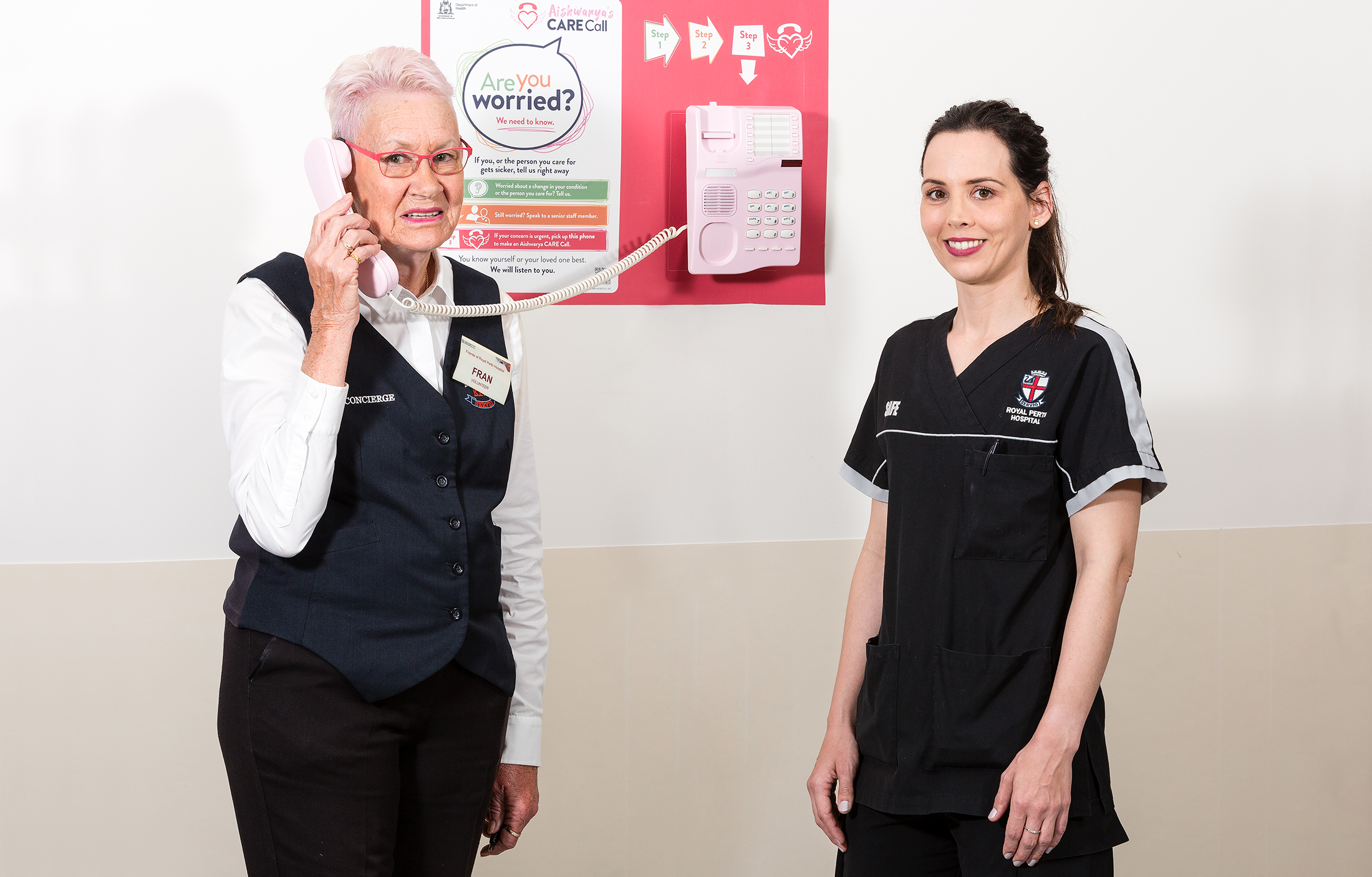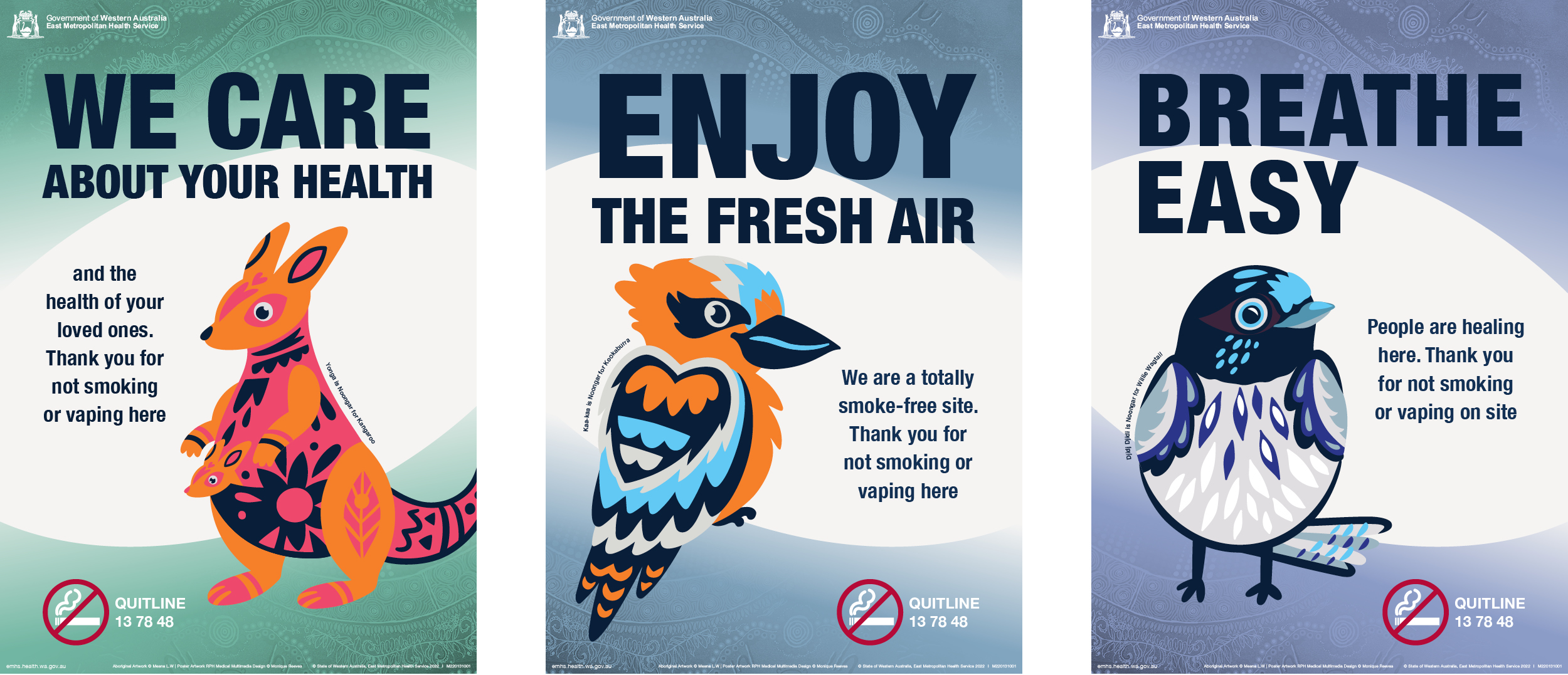Safety as our priority
The provision of safe, high-quality care remains the number one priority for EMHS. We continually look for new and innovative ways of improving our performance and reducing the risk of clinical and other errors.
Emergency departments embrace triage-triggered texts
In March 2022, EMHS introduced an innovative initiative that ensures patients presenting to our busy EDs receive timely information about what they can expect from their visit.
A welcome text is sent to the patient’s mobile phone once they have been triaged. The text is generated automatically upon entry of their details into our hospital system.
The message includes important information about raising concerns in the event of patient deterioration, and also provides links to the relevant hospital’s website.
This safe and environmentally friendly service improvement was inspired by a similar initiative operating at SJGMPH and was prompted by the need to ensure patients, carers and family members are provided with important information and opportunities to escalate care as early as possible.

Aishwarya’s CARE Call
In October 2021, EMHS changed the name and look of its existing care call system — the system that enables families and carers to escalate care in the event of a deteriorating patient.
The changes at RPH, AHS, BHS and KH were part of a WA Health system-wide collaboration involving all HSPs and were implemented in response to the tragic death of a young girl at Perth Children’s Hospital.

Rebranded Aishwarya’s CARE Call, the revamped system was designed to empower families and carers to alert hospital staff to deterioration in a patient’s condition, prompting an escalation in care.
In our EDs, clearly sign-posted fixed phones were installed that provide automatic connection to the Aishwarya CARE Call number, while the presence of our waiting room nurses was also bolstered.
Since the adoption and implementation of Aishwarya’s CARE call, 114 calls have been made at EMHS hospitals.
Of these:
-
76 related to seeking an escalation in clinical care. Of these 76 calls:
- 26 required clinical intervention and remained on the ward/department
- 2 required transport to another ward/department.

EMHS’ smoke-free status
EMHS was proud to have worked towards stamping out smoking in 2021-22.
Smoking — including the use of vaping and e-cigarettes — is now prohibited across EMHS grounds, including our:
- hospitals
- community health centres
- office buildings
- car parks
- vehicles
- garden or outdoor areas.
The change was phased in gradually, with BHS becoming our first smoke-free site.

A dedicated EMHS Smoke-free Team was created to ensure EMHS was well prepared for the changes. It did this by:
- implementing a comprehensive communications plan and smoke-free learning pathway
- providing education and training to staff members on best-practice management of nicotine dependency
- developing a suite of new ward-based resources
- increasing access to the staff nicotine replacement therapy (NRT) program — with staff now having access to a free 12-week course per year
- developing a new suite of smoke-free signage for hospital sites to replace the outdated “no smoking” signs. The colourful new designs depict flora and fauna indigenous to our local area.
By providing a smoke-free environment for our patients, staff and visitors, we are reducing the harm from second-hand smoke exposure and supporting people who have recently stopped —
or are trying to stop — smoking.
EMHS recognises that there is no safe level of exposure to tobacco smoke.
Risk management and audit
The three lines of defence model employed by EMHS clearly defines functions that are involved and responsible for effective risk management. These lines of defence are:
- own and manage risks
- oversee risks
- provide independent assurance.
The EMHS Board Audit and Risk Committee forms part of the organisation’s wider governance framework and provides a key oversight role for the second and third lines of defence through the risk management and audit functions.
Risk management
The 2021-22 highlights of the risk management function included the:
- assessment of risks against new WHS Legislation to ensure EMHS continues to provide a safe workplace
- improvements to the assessment of ICT risks, including patient safety impacts and cyber risks
- assessment of clinical risks and frontline risk identification, to ensure risks can be identified and escalated from the frontline and are aligned to clinical data
- review of the EMHS strategic risk profile and confirmation of key strategic risks and responsibility for control improvements.
Additionally, EMHS has undertaken a maturity assessment of the risk management function, which has assessed EMHS as having a maturity level of evolved, as well as being aligned with its industry peers. The assessment has identified a series of recommendations towards achieving its target maturity, which will be implemented over the next 12 months.
Internal audit
In 2021-22, the internal audit function undertook a quality assessment review to ensure activities performed are in accordance with the International Standards for the Professional Practice of Internal Auditing. It was found that the internal audit services conform to the auditing standards and the maturity of the function, maximising its capability to provide objective and insightful assessment for the organisation.
The risk-based Audit Plan saw major reviews conducted in high priority areas such as violence and aggression, misconduct prevention and complaints management. Recommendations from these reviews are being implemented to provide continuous improvements to processes and service delivery at EMHS.
In 2021-22, management was able to close 62% of the internal and external recommendations logged for the year, while 38% were in progress at the time of this report. There is a robust governance process in place headed by the Board Audit and Risk Committee, to monitor and query management and implementation of these audit recommendations.
Complaints management audit
Health consumer feedback is a valuable component of the quality improvement cycle, and the complaints process is one of the vital instruments in place at EMHS through which the organisation can obtain this feedback.
In 2021-22, EMHS commenced an internal audit of complaints management in order to determine the effectiveness of controls and systems in place for the management of feedback — including complaints from patients, families, carers and the general public.

